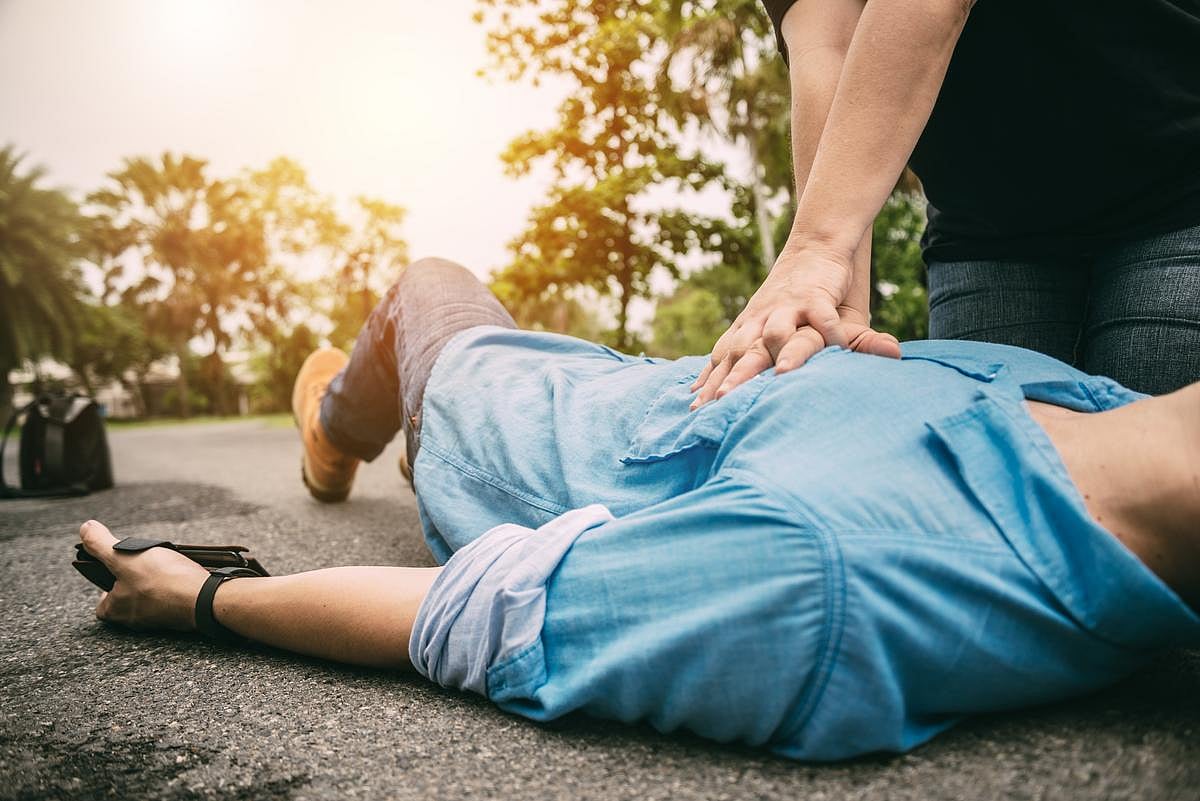Get Healthy!

- Ernie Mundell
- Posted July 30, 2025
'Tongue Swallowing Prevention': The Wrong First Move When Cardiac Arrest Strikes
When a person collapses from cardiac arrest, many on the scene first try to prevent them from swallowing their tongue, believing it to be necessary in helping them to breathe.
Experts call that a potentially fatal misconception that could delay lifesaving CPR.
New Israeli research looking at 45 cases of collapsed athletes finds the scenario happens all too often.
"Our study highlights the dangerous and persistent misconception of ‘tongue swallowing prevention,’ which can delay the initiation of life-saving chest compressions,” said study lead author Dr. Dana Viskin, a cardiologist at Tel Aviv Sourasky Medical Center and Tel Aviv University.
The myth of tongue-swallowing prevention is also tough to stamp out.
When it happens in cases involving high-profile athletes, “the media often praise such misguided actions as heroic,” Viskin noted.
“We urgently need to re-educate the public and the media and reframe the narrative around CPR, especially in sports," he said in a news release from the Canadian Journal of Cardiology, which published the finding July 30.
Experts say it’s little wonder that people focus on an athlete’s airway when sudden cardiac arrest (SCA) strikes during play.
“Some SCA patients, particularly young males with shockable arrest rhythms, may exhibit seizure-like activity at onset,” explained Nicholas Grubic, the author of a journal editorial that accompanied the study.
“Furthermore, signs such as cyanosis [bluish skin] and agonal respirations [gasping breaths] can be mistaken for choking, often prompting bystanders to prioritize airway inspection over initiating CPR,” said Grubic, an epidemiologist researcher at the University of Toronto.
These patterns are particularly common when otherwise robust athletes undergo cardiac arrest, and it’s not unreasonable for bystanders to mistakenly believe that the victim is choking, the study authors said.
However, the real danger is to the athlete’s heart, and every second spent “saving” the athlete from tongue swallowing delays CPR.
Those delays too often prove fatal.
Viskin’s team analyzed 45 cases — caught on video or otherwise documented — of athletes who’d collapsed during sports events between 1990 and 2024.
“Our analysis showed that in 84% of cases where the initial response was visible, inappropriate maneuvers to ‘prevent tongue swallowing’ were performed before proper CPR,” Viskin said.
“These incorrect actions were significantly associated with poor outcomes: 67% of those receiving such maneuvers died or had severe brain injury, compared to 0% when CPR was the first response,” he said.
However, when media reported on such cases, almost half (48%) remarked favorably on bystanders’ attempts to prevent “tongue swallowing” — furthering the myth that this intervention is necessary and helpful.
Only better education of the public can turn this potentially fatal situation around, Grubic said.
“Although promoting CPR and automated external defibrillator (AED) knowledge remains a cornerstone of SCA education, teaching the public to recognize the early signs of an arrest is equally critical, as every second without action drastically reduces the chance of survival,” he said.
“Our public capacity to save lives should not be impeded by misinformed voices – now is the time for the academic, health care and media sectors to join forces and build a healthier information environment for all,” Grubic added.
More information
Find out more about the proper use of CPR at the American Red Cross.
SOURCE: Canadian Journal of Cardiology, news release, July 30, 2025





